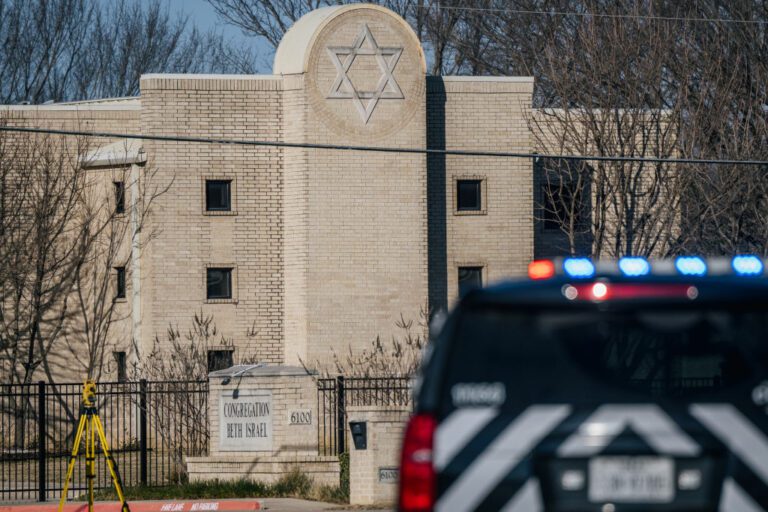Everything you need to know about what happened, who did it, the motives behind the act, and the main takeaways and consequences

What Happened
- On Saturday, January 15, a 44-year-old British citizen, Malik Faisal Akram, held four members of Congregation Beth Israel synagogue in Colleyville, Texas hostage.
- Beth Israel’s Rabbi Charlie Cytron-Walker was at the synagogue preparing for Shabbat services when Akram knocked on a window of his temple. Cytron-Walker invited him in for tea, thinking he was troubled and in need of help.
- Law enforcement officials said they learned of the hostage-taking incident when members of the synagogue, many watching the ordeal unfold on an online Livestream feed of the service, called 911.
- One of the four hostages was released around 5 p.m., but as the standoff dragged on, Akram began growing more agitated, yelling that he was going to kill the remaining hostages.
- Rabbi Cytron-Walker and the other two remaining hostages maneuvered to get as close as possible to the exit door, and in the 11th hour of the standoff, Rabbi Walker threw a chair at Akram and all three made a lunge for the exit. They all escaped unharmed.
- Immediately afterward, the FBI’s elite hostage rescue team breached the building and killed Akram.
Who is Malik Faisal Akram?
- Akram had a long history of violence and petty crime in Blackburn, England. He was frequently in court and notorious for his violent outbursts.
- Akram’s marriage ended acrimoniously after he had fathered six children.
- Akram studied the teachings of Tablighi Jamaat, an Islamist sect that teaches the Wahhabi ideology and has been banned in several countries.
- Akram arrived in the U.S. on a tourist visa from Great Britain approximately five weeks before the incident.
- He was not believed to be included in the FBI’s Terrorist Screening Database. British media reported that Akram was investigated by the domestic intelligence service MI5 as a possible terrorist threat in 2020, but the M15 authorities concluded he posed no danger, and the investigation was closed.
- Federal investigators believe he bought the handgun used in the hostage-taking in a private sale.
- In a recording of the Texas synagogue gunman’s final call to his family, he ranted about the “f***ing Jews” and boasted about his desire to “go down a martyr.” In an address fellow jihadists, he shouted: “We’re coming to f***ing America. F*** them if they want to f*** with us. We’ll give them f***ing war.”
What Were Akram’s Motives?
- Akram’s primary demand was the release of Aafia Siddiqui, also known as “Lady al-Qaeda.”
- FBI Special Agent Matthew DeSarno commented on the motive of the gunman, saying, “We do believe from our engagement with this subject that he was singularly focused on one issue, and it was not specifically related to the Jewish community.” These comments raised questions about the integrity of the FBI.
- While the FBI insisted that Akram was “singularly focused on one issue,” U.S. President Joe Biden reflected on the hostage crisis at an event in Philadelphia the day after the incident that the attacker had multiple agendas.
- The FBI received a large outpouring of criticism over their initial response over Akram’s motives. Eventually the FBI released a statement acknowledging that it was a terrorist attack that specifically targeted the Jewish community.
- Beth Israel’s Rabbi Cytron-Walker told The Forward that Akram apparently “thought he could come into a synagogue, and we could get on the phone with the ‘Chief Rabbi of America’ and he would get what he needed.”
Who is Aafia Siddiqui?

- Aafia Siddiqui is a neuroscientist with a doctorate from Brandeis University who became the first woman accused of working with al-Qaeda leadership.
- Siddiqui was convicted in 2010 of attempting to kill American military personnel in Afghanistan while being detained in 2008 on suspicion of plotting attacks in New York. She is currently serving an 86-year prison sentence.
- In 2009, while awaiting trial, Siddiqui tried to fire her lawyers because of their Jewish background. Siddiqui later demanded that jurors in her trial be DNA tested to prove they weren’t Jewish.
- Siddiqui’s release has been a cause championed by a number of Islamic groups. NBC News reported that ISIS, Al-Qaeda and other radical Islamic groups offered to release their hostages in exchange for her release. A number of American Muslim groups have also called for her release, most notably the Council on Islamic Relations (CAIR). As recently as November, the Texas chapter of CAIR and Linda Sarsour hosted a discussion about “the campaign to free” Siddiqui.
The Takeaways – Moving Forward
Additional Arrests
- On January 16, the day after the incident, British authorities arrested two teenagers in South Manchester in connection with the attack. They were released Wednesday without charges after three nights in custody.
- Greater Manchester Police revealed that two additional men were arrested for questioning on Thursday morning.
Increasing Security Systems and Training
- Approximately 1,500 Jewish leaders joined a Zoom meeting three days after the incident to ask Attorney General Merrick Garland and Secretary of Homeland Security Alejandro Mayorkas to discuss security.
- Jewish organizations in the U.S., including the Jewish Federations of North America and the Orthodox Union, have reignited their push for Congress to double the funding of the Nonprofit Security Grant Program (NSGP).
- NSGP grants go toward security measures in nonprofit organizations, including religious centers, museums and houses of worship. These measures include the installation of security cameras, secure doors, barriers and active-shooter training drills.
- Rabbi Cytron-Walker credits instruction from the FBI and other groups on how to respond to an active shooter situation with helping him and the other congregants at Beth Israel escape safely.
Making it Harder for Foreign Visitors to Purchase Guns
- Senate Majority Whip Dick Durbin wants to close a legal loophole that allows foreign visitors from close allies such as the United Kingdom to purchase firearms. Current law prohibits gun sales to foreigners arriving on visas. But that doesn’t apply to travelers from dozens of countries included in the Visa Waiver Program, including the U.K. and much of the European Union.



